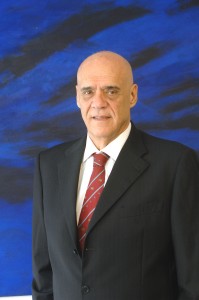More than a year after the Clean Company Law came into force, President Dilma Rousseff signed its regulations, highlights Evandro Guimarães

In a gesture awaited 14 months ago, President Dilma Rousseff signed on March 18 the decree that regulates Law nº 12.846 / 13, the Clean Company Law or Anticorruption Law. With the regulation, which defines responsibilities in the application of the law, States and municipalities that awaited this definition will finally be able to adopt its parameters. As a result, the law will be in force throughout the national territory.
In January 2014, the business market was agitated with the entry into force of this law. The biggest concern for entrepreneurs was understanding how to put a compliance program into practice - either corporate integrity or compliance. Much has been discussed about which measures could be most effective, as the law holds corporations accountable for acts of corruption by their employees.
The processing of the bill was fast, considering the average time of this process in Brazil. Its promulgation by the president, in August 2013, also followed this pace. And the entry into force, on January 29, 2014, took place as scheduled.
There was some international pressure to pass the law, after the creation of the United Nations Global Compact and the convention of the Organization for Economic Cooperation and Development (OECD). Brazil should follow the example of other countries and begin to financially punish companies that tolerate acts of corruption in their staff, before the World Cup.
Brazil took care of all that. The regulation of the law fell to the municipalities, the States and the Union. The State of São Paulo, like that of Rio Grande do Sul, published a regulatory decree on January 29, 2014. The City of São Paulo, on 13 of May. Some states and many municipalities, however, were awaiting federal regulation, even to be able to follow the same parameters.
Federal regulation was essential to avoid leaving legal gaps that would hinder its implementation. In view of the delay in federal regulation, six entities sent a letter to President Dilma Rousseff, on January 28, reinforcing the importance of publishing the decree. ETCO, Ethos Institute, BM&F Bovespa, Brazilian Institute of Corporate Governance (IBGC), Group of Foundations and Companies Institutes (GIFE) and Brazilian Business Council for Sustainable Development (CEBDS) highlight, in the document, the importance of showing society that it exists effort to reduce corruption in the country. But it was only after the March 15 demonstrations that the president signed the regulatory decree, as part of the anti-corruption package announced on the 18th.
The decree gives the Federal Comptroller General (CGU) exclusive competence to institute, investigate and judge acts that are harmful to the public administration; establishes assessments on the effectiveness of compliance programs; defines conditions for leniency agreements and determines the financial punishment of the convicted company. The fine will never be less than the value of the benefit earned and its limits are 0,1% to 20% of the gross revenue of the last year (if it is not possible to evaluate the company's gross revenue, the amount will be limited between R $ 6 thousand and R $ 60 million).
It is now up to companies and all Brazilians to persistently mobilize to comply with the Clean Company Law.
*Evandro Guimaraes is Executive President of the Brazilian Institute of Competition Ethics (ETCO)



